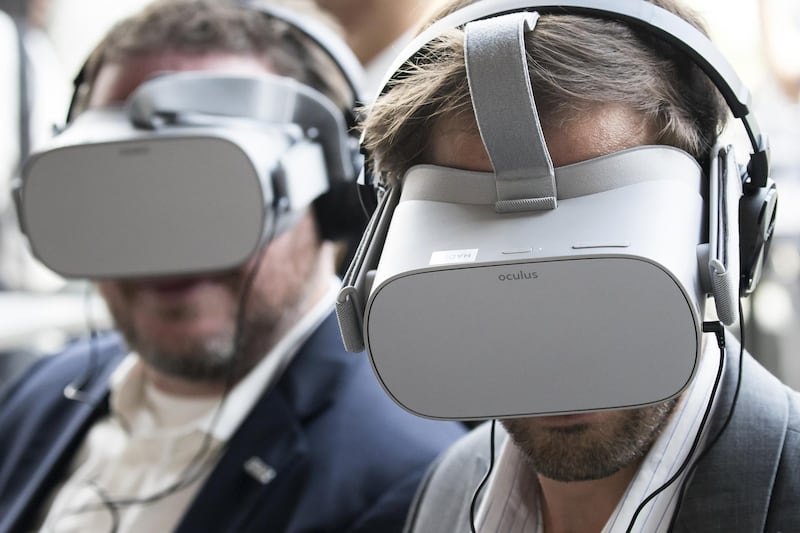Earlier this month, the British School Al Khubairat in Abu Dhabi sealed a time capsule full of mementos and keep-saves with instructions for it to be opened in 2068, when the school expects to celebrate its 100th anniversary. It had previously buried a capsule in 1993, which was meant to be opened last year, when BSAK marked its 50th birthday.
So much of the attraction of time capsules is that they bring together fragments of the past, the concerns of the present and allow us all to wonder what the world will look like years from now.
There are no easy answers to that question beyond those that instinctively fall back on a facsimile of the original Blade Runner movie or Back to the Future and their use of flying cars, although both films also made several accurate guesses as to what the world today looks like.
What is fair to say, however, is that our world will have changed a lot and almost not at all by the time 2068 ticks around.
Twenty-five years ago, when that first BSAK capsule was buried, parents fretted about their children watching too much TV. Today, they are still worried about their offspring spending too much time looking at screens, albeit not the TV any more. So much for the strong and long march of change.
In broader, regional terms, it can be hard to be optimistic.
In 1993, the first Gulf crisis and the civil war in Lebanon were still fresh in the memory and the regional designs of Iran were a concern. Today, there is conflict and tension across the Middle East and in some cases little immediate hope for resolution. The concerns about Iran's role also remain in sharp focus.
These are not isolated examples. Conflicts appear to be as hard as ever to resolve in the 21st century and consensus more difficult to achieve.
But we must also force ourselves to have hope. Technology may yet provide solutions to the most knotty problems. As much as many people turn their noses up at the idea of Twitter diplomacy, it has already created diplomatic openings at far greater speeds than we could have previously imagined.
More broadly, as Tom Fletcher, a contributor to this newspaper, wrote in these pages, contemporary life and history is an "evolution of reason over craziness, expertise over instinct, community over tyranny and honesty over lies."
In the UAE, that means there is likely to be a continued foreign policy commitment to dialogue, despite the trigger-happy nature of some less thoughtful regional players.
Domestically, Dubai offered a peek at the future last week with its 50-year charter for commerce, which works in concert with the emirate's principles of governance. Federally, the UAE Government will continue to promote tolerance, youth and artificial intelligence up the agenda, recognising the challenges and opportunities for future generations. It will also remain committed to forging prosperity and wellbeing for those who live in the country.
In 50 years' time, the UAE's space programme will be seen as being firmly established rather than in its foundation years. The country's Amal (hope) mission to Mars will, by then, be looked back on with great affection as an epic story from yesteryear as the country prepares for its centenary celebrations in 2071.
What we also know is that by that time, those countries that engage in dialogue and collaboration will thrive. Partnership and properly formulated strategy will provide answers to the biggest questions of the late 21st century. Those who lack vision or seek only to obstruct or meddle will not prosper. Those who seek to build opportunity will flourish.
But beyond that, it is a fool’s game to make firm predictions about what the world will look like in 2068 – except that there will be flying cars.
Stepping back to 1993, Apple computers had just launched its Newton device, a handheld digital assistant. The product was a flop at a time when the company badly needed a hit, but you could easily say that it foretold the kind of portable devices, such as smartphones, that we take for granted today. At the very least, it made us think that computing power didn't need to be chained to a desk, but ultimately it was the right answer delivered at the wrong time.
So, speculating about the future gets you somewhere and nowhere. For today’s politicians and diplomats, the challenge is to do the former – get somewhere – and push societies towards a better tomorrow.
Nick March is an assistant editor-in-chief at The National





